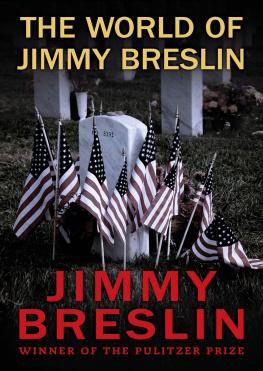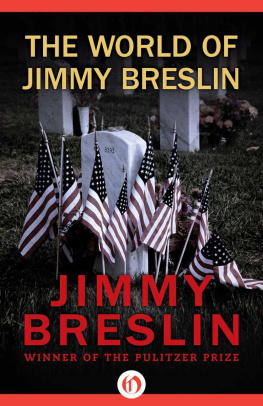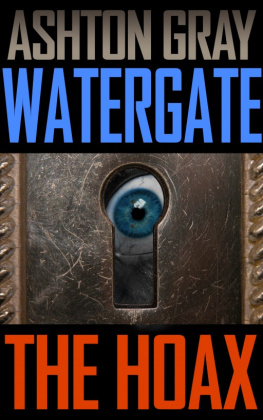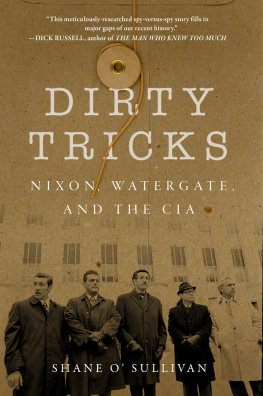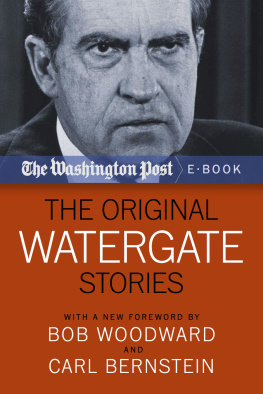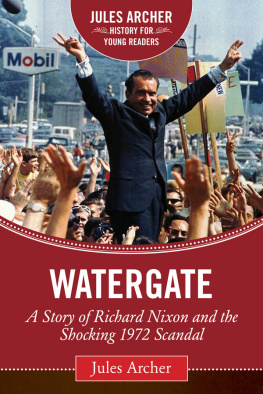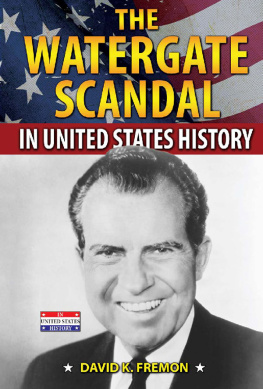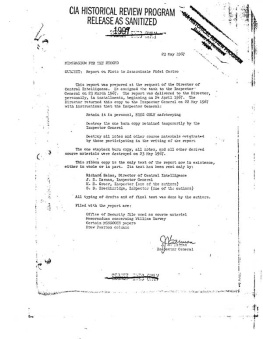Guilty
IT WAS AS GRACELESS at the end as it was at the start.
The room was dim in the late afternoon and a heavy rain beat on the smeared windows. The room, one of the witness rooms on the second floor of the Federal Courthouse in Washington, was being used by defendants in the Watergate case as they waited for the jury to come in. William Hundley, the lawyer for John Mitchell, was standing in the doorway, taking the quick last drags on his cigarette.
A note, he said.
A note? one of the other lawyers in the room said.
A note, Hundley said.
A verdict?
All I know is the jury sent in a note.
The lawyer spoke in a low voice to Hundley. I hope we dont get a verdict today. My guys not in shape to handle it.
Well, you better go in there with him now, Hundley said. Hundley knew it was a verdict.
The lawyer walked out.
Who does he have? someone asked Hundley.
He bent down, taking the final drag on his cigarette before dropping it onto the floor.
Mardian.
The hallway outside, empty all day, now was filled with reporters running to get places in line at the doors to the second-floor courtroom. As Hundley came out of the witness room, John Mitchell, courtroom gray stained into his face, passed by, his walk heavy. Hundley followed him. As we left the dim waiting room, the windows suddenly became filled with bright white light. Outside in the rain the television men, plastic parkas and wet beards, were turning on their equipment.
It was 4:25 p.m. of an empty New Years Day, 1975, and now it was all coming to an end.
The windowless courtroom was too bright, the neon ceiling lights glaring off the blond-paneled walls. This type of American ceremony has no richness to it; dark tragedies are played out in flat, harsh civil-service surroundings. The five defendants already were in the courtroom when the doors were opened for reporters. There were less than a dozen ordinary spectators. At the start of the sequence of trouble, there are large crowds of the curious and knots of close friends shielding you from the curious. As the case wears on, and next week becomes next month, the curious go elsewhere and the close friends live their own lives, and at the end you always are alone with fear.
The five defendants sit at separate tables with their lawyers. Haldeman, the forehead seeming a little too large for the rest of his head. A great deal of darkness about his eyes. Ehrlichman, thin-rimmed glasses, a bulging briefcase at his feet. He carries it with him every day, the sides of the bag swelling with each new proceeding, each new document. My case. The man in the most trouble in a courtroom always carries the most papers. Mitchell, sitting up against the wall, saying something to Hundley, who tries to smile. Mardian, lips pursed, eyes glaring, frightened. Parkinson, dull, clerkish, a cipher.
It was 4:35 and they waited in the courtroom. Along the wall in the front of the room were two easels used for exhibits during the case. One of the easels had been tipped over. The large white card on it carried a heading, White House Chart. The squares showed which man was where in the times when they all thought the power they had was real and permanent. The card on the other easel said, Committee to Re-Elect President. Titles out of the past.
The doorknob on the door in the front of the room, to the left of the bench, rattled noisily, metallically. The courtroom froze. A loud click. The door opened. A gray-haired clerk, carrying a sheaf of papers, walked in and sat at the table in front of the bench. Who knows what the papers were? Clerks in courtrooms always carry papers. Movement came back to the people in the harsh lighted room.
The doorknob rattled again. Movement in the courtroom froze again. Another loud click. Another clerk walked in carrying another sheaf of papers.
The defendants followed the clerk as he walked to his seat.
Minutes went by. It was 4:40 now. Reporters were standing, looking at the defendants, making notes of what they were seeing, their hands shaking in the tension.
The doorknob rattled again. Silence in the room. Now the click. An immense black marshal, head shaved, looked into the room.
All ready? he said to the gray-haired clerk.
All ready, the clerk said.
The marshal went out the door but did not shut it entirely. Now, without a sound, the door swung open. The marshal slammed his hand on the wood.
All rise, the gray-haired clerk said.
Into the harsh light came the judge, John Sirica. He went to his seat quickly, his face expressionless. He sat down and immediately turned to the marshal.
Bring in the jury.
The marshal leaned out into the hallway behind the courtroom and stood there a moment, his hand on the door, and now there was another marshal in the hall way and behind him came the jury. They went to their seats with the shoes of the black women jurors sounding loudly on the wooden floor of the jury box. There was something pink around the neck of one of the women. There was an older woman, sparse gray wiry hair pulled straight back, hands folded in her lap. Old black woman sitting in a train station. Instead, she was passing judgment on a man who was the Attorney General of the United States. The foreman, somber, in brown, held a large brown envelope, a civil-service envelope.
The gray-haired clerk, James Capitanio, asked the foreman to rise.
Has the jury reached a verdict?
Yes, they have. John A. Hoffar was the foreman.
He held out the civil-service envelope. The dark-haired clerk walked up and took it from him. The clerk took the envelope to the bench. It was 4:48. Everybody in the courtroom sat with mouths partly opened, breathing against nerves. The two clerks stood at the bench, backs to the courtroom, while Sirica opened the large envelope. He had trouble getting the papers out. He held the envelope up, reached into it, and began taking sheets of long white paper out. He put on his glasses and began reading the papers. One of the clerks shook the envelope to be certain it was empty. Sirica was saying something as he went over each paper, the clerks mumbling something back. At 4:49, Sirica still was reading and the clerks still mumbling with him. The mouths in the courtroom became a little more open. At 4:50, Sirica nodded, his head came up, and he sat back. His face showed nothing.


